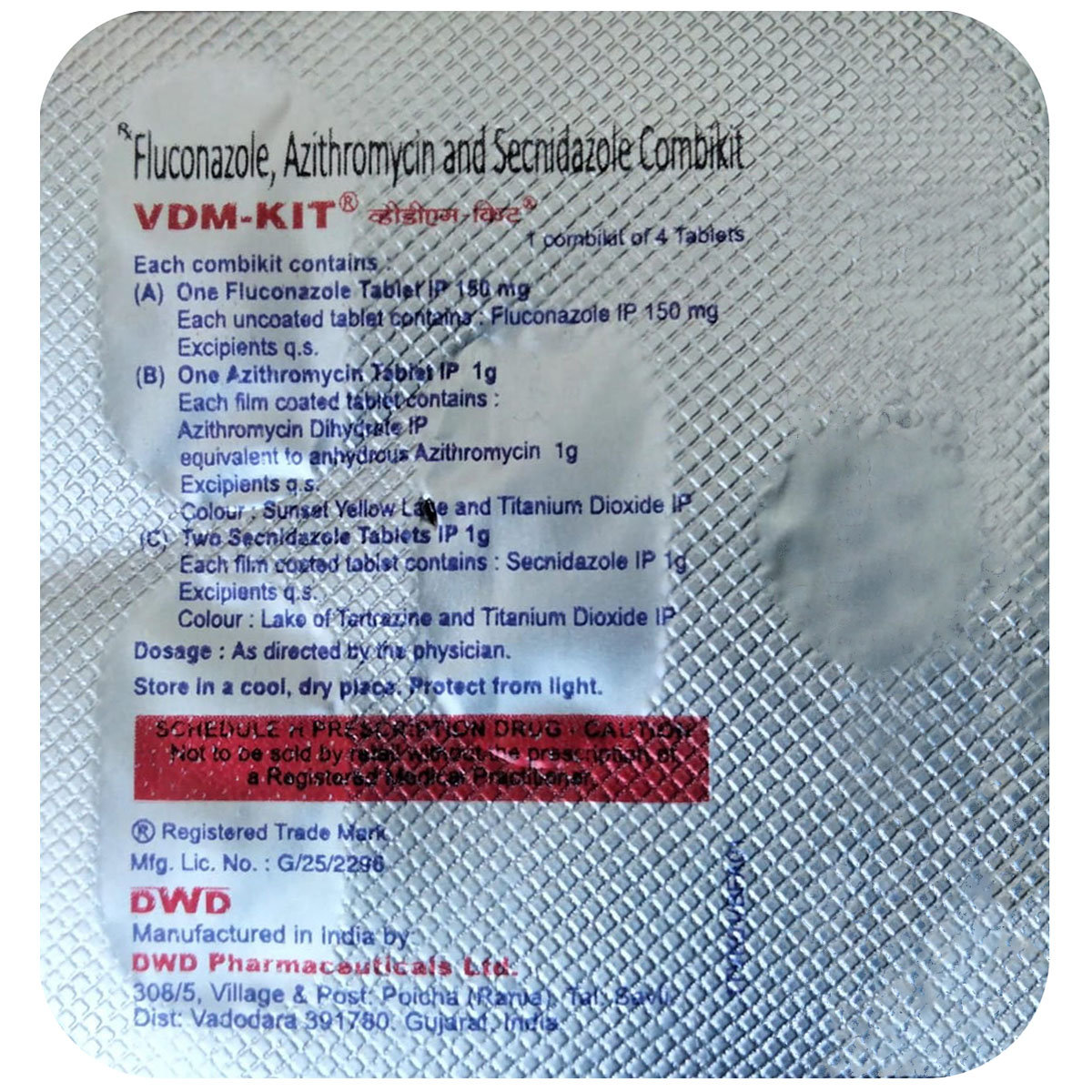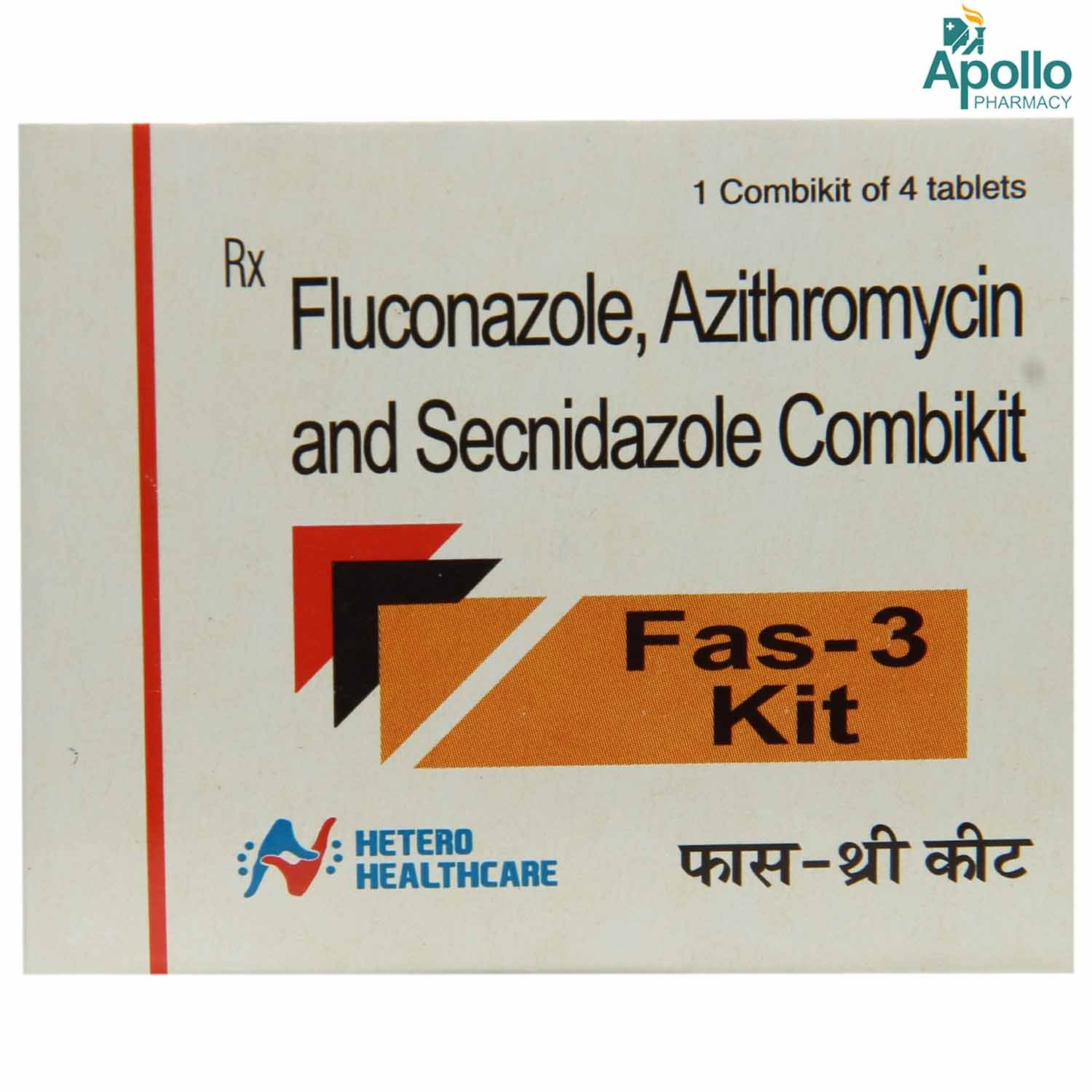Secnidazole
About Secnidazole
Secnidazole is used to treat various infections caused by bacteria and parasites (amoeba). It is prescribed for the treatment of diarrhoea caused by microorganisms Entamoeba histolytica and Giardia lamblia. Additionally, it also treats vaginal and other bacterial infections. A bacterial infection is a condition in which harmful bacteria enter, multiply, and infect our bodies. It can target any body part and multiple parts very quickly. Parasite (amoeba) infection is an intestinal (bowel) illness caused by a parasite (amoeba) known as Entamoeba histolytica spread through human faeces (poop).
Secnidazole enters the bacterial cell as a prodrug, lacking antimicrobial activity. Secnidazole is converted to an active form by bacterial enzymes. Secnidazole slows the growth or sometimes kills the harmful bacteria and parasites (amoeba) that cause infections by damaging their DNA. It is bactericidal, working by killing bacteria that cause infections. Secnidazole does not treat a viral infection like the flu or a common cold.
Take Secnidazole as prescribed by your doctor. You are advised to take Secnidazole as prescribed by your doctor, depending on your medical condition. You may experience headache, vomiting, nausea, abdominal pain, diarrhea, vaginal itching, and vaginal yeast infection. Most of these side effects of Secnidazole do not require medical attention and typically resolve on their own over time. However, if the side effects are persistent, reach out to your doctor.
Before taking Secnidazole inform your doctor if you have an allergy to other antibiotics. Before using this Secnidazole inform your doctor about your medical history. If you are pregnant or breastfeeding, consult your doctor before taking Secnidazole.
Uses of Secnidazole
• Bacterial Infections: Secnidazole is commonly used to treat various bacterial infections, including respiratory tract infections, urinary tract infections, ear Infections, and skin infections.
• Treatment of Vaginal Infections: Secnidazole is effective in managing mixed vaginal infections caused by bacteria, fungi, or parasites, such as bacterial vaginosis, candidiasis, and trichomoniasis.
• Management of Pelvic Inflammatory Disease: Secnidazole can be prescribed for infections in the genital region, including pelvic inflammatory disease.
• Treatment of Diarrhoea: Secnidazole is effectively used to manage various types of diarrhoea, including both acute and chronic cases.
Medicinal Benefits
Secnidazole is a broad-spectrum antibiotic that is effective against a wide range of gram-positive and gram-negative bacteria. It kills the harmful bacteria and amoeba (Entamoeba histolytica, Giardia lamblia), causing diarrhoea. It is also used to treat veginal infections in adult women. Secnidazole enters the bacterial cell as a prodrug, lacking antimicrobial activity. Secnidazole is converted to an active form by bacterial enzymes. Secnidazole slows the growth or sometimes kills the harmful bacteria and parasites (amoeba) that cause infections by damaging their DNA. It is bactericidal, working by killing bacteria that cause infections. Secnidazole does not treat a viral infection like flu or a common cold.
Directions for Use
- Secnidazole can be taken with or without food.
- Follow your doctor's instructions on the dosage and timing of this medication.
- Swallow Secnidazole as a whole with a glass of water.
- Do not crush, break, or chew it.
Storage
Side Effects of Secnidazole
- Headache
- Vomiting
- Nausea
- Abdominal pain
- Diarrhea
- Vaginal itching
- Vaginal yeast infection
Medicines Containing this Salt
View AllDrug Warnings
Before taking Secnidazole inform your doctor if you have an allergy to other antibiotics. Before using this Secnidazole inform your doctor about your medical history. If you are pregnant talk to your doctor because it is not known whether Secnidazole will harm an unborn baby. Immediately contact your doctor if you are a breastfeeding mother, you may stop this Secnidazole for at least 4 days after your last dose. Immediately talk to your doctor if you have rashes and swelling occurs after taking this Secnidazole. If you have blood disease or a history of blood disorders, and epilepsy then inform your doctor before taking this Secnidazole. Do not drive or operate heavy machinery after taking Secnidazole as it may cause side effects.
Drug Interactions
Drug-Drug Interaction: Secnidazole have interactions with oral contraceptives (Ethinyl estradiol plus norethindrone), cholesterol-lowering pills (atorvastatin), a vaccine for tuberculosis (BCG), several antibiotics (amoxicillin, ciprofloxacin), pain killer (diclofenac), other antibiotics (metronidazole, tinidazole).
Drug-Food Interaction: The consumption of alcoholic beverages should be avoided as it may lead to flushing, drowsiness, and dizziness.
Drug-Disease Interaction: Secnidazole should not be given to people who have taken vaccines.
Drug-Drug Interactions Checker List:
Safety Advice

Alcohol
unsafeDrinking alcohol with Secnidazole is to be strictly limited as it may lead to severe reactions.

Pregnancy
consult your doctorIt is not known whether Secnidazole will harm an unborn baby. Inform your doctor if you are pregnant.

Breast Feeding
unsafeYou should not breast-feed while using Secnidazole and for at least 4 days after your last dose.

Driving
unsafeYou should not drive if you experience any discomfort after taking this Secnidazole.

Liver
cautionSecnidazole to be taken with caution, especially if you have a history of liver diseases/conditions. The dose may have to be adjusted by your doctor.

Kidney
cautionSecnidazole to be taken with caution, especially if you have a history of Kidney diseases/conditions. The dose may have to be adjusted by your doctor.

Children
unsafeSecnidazole is not approved for use by anyone younger than 18 years old.
Habit Forming
Diet & Lifestyle Advise
- If you have diarrhoea try to drink appropriate amounts of fluids to avoid dehydration.
- If you have minor diarrhoea (less than four stools daily), drinking caffeine-free soft drinks, juices or sport rehydration drinks can be sufficient.
- If the diarrhoea is more severe, specially formulated rehydration drinks should be taken.
Special Advise
Do not stop taking the medicines since your infection may reappear. Please see your doctor before discontinuing the medications, and follow their recommendations.
Patients Concern
Disease/Condition Glossary
Bacterial infection: A bacterial infection is a condition in which harmful bacteria enter, multiply, and infect the body. It can target any body part and multiple parts very quickly. When you get infected with bacteria, you can experience generalised symptoms, such as fever, chills, and fatigue. Bacteria come in various forms, commonly spherical, rod-shaped, and spiral-shaped. Bacterial infections range from minor illnesses, such as sore throats and ear infections, to severe brain infections, including meningitis and encephalitis. A few harmful bacteria that cause infections include Streptococcus, Staphylococcus, and E. coli. Anyone can contract a bacterial infection. However, people with weakened immune systems or those taking immunosuppressive medications may be more prone to bacterial infections.
Amoebic dysentery: It is an intestinal (bowel) illness caused by a parasite (amoeba) known as Entamoeba histolytica, spread through human faeces. Usually, there are no symptoms; however, it can sometimes cause diarrhoea (loose stool or poop), nausea (a feeling of sickness in the stomach), and weight loss.
FAQs
Secnidazole is used in the treatment of Bacterial Infections, Diahorrea due to Entamoeba histolytica, Giardia lamblia, and Vaginal bacterial infections.
No, this is an antibiotic medication. You need to complete the full course even if you start to feel better, to prevent the infection from returning.
No. Secnidazole is an antibacterial medicine that acts only against bacterial infections and not viral infections like common cold and flu. You should not take Secnidazole without prior consulting your doctor. Self-medication is dangerous and can lower the efficacy of Secnidazole, leading to antibiotic resistance.
If you miss a dose of Secnidazole, take the missed dose as soon as you remember it. However, if it is almost time for the next dose, do not take a double dose to make up for a missed one
Alcohol should be strictly avoided while taking Secnidazole. Furthermore, you should avoid alcohol even after 3 days of finishing the complete course. Drinking alcohol can lead to an unpleasant reaction with symptoms like nausea, stomach pain, vomiting, headache, coloring, or redness of the face.
Secnidazole is safe if used in the dose and duration recommended by your doctor. Take it just as instructed and do not skip any dose. Follow your doctor's directions carefully and inform your doctor if any of the side effects disturb you.
Yes, Secnidazole helps treat diarrhoea caused by microorganisms Entamoeba histolytica and Giardia lamblia.
Yes, Secnidazole can be taken for a vaginal infection such as bacterial vaginosis (an infection caused by an overgrowth of harmful bacteria in the vagina) if advised by the doctor.
Secnidazole can be used to treat stomach infections caused by bacteria and protozoa, if prescribed by a doctor.
Secnidazole works by stopping the growth of bacteria that cause infections. Thereby, it helps treat bacterial infections.
Secnidazole should be taken as advised by the doctor. Take Secnidazole at a fixed time daily, as it will help you to remember taking the medicine.
Secnidazole may cause headache, vomiting, nausea, abdominal pain, diarrhoea, vaginal itching, and vaginal yeast infection. Most of these side effects of Secnidazole do not require medical attention and typically resolve on their own over time. However, if the side effects are persistent, reach out to your doctor.
Yes, Secnidazole is effective if taken as advised by the doctor for the prescribed duration.
Secnidazole should be avoided by people who are allergic to any of its components.
Secnidazole should be used during pregnancy if prescribed by the doctor. Please consult the doctor if you are pregnant or planning to become pregnant.
No, do not breastfeeding while taking Secnidazole and for 4 days after the last dose.





